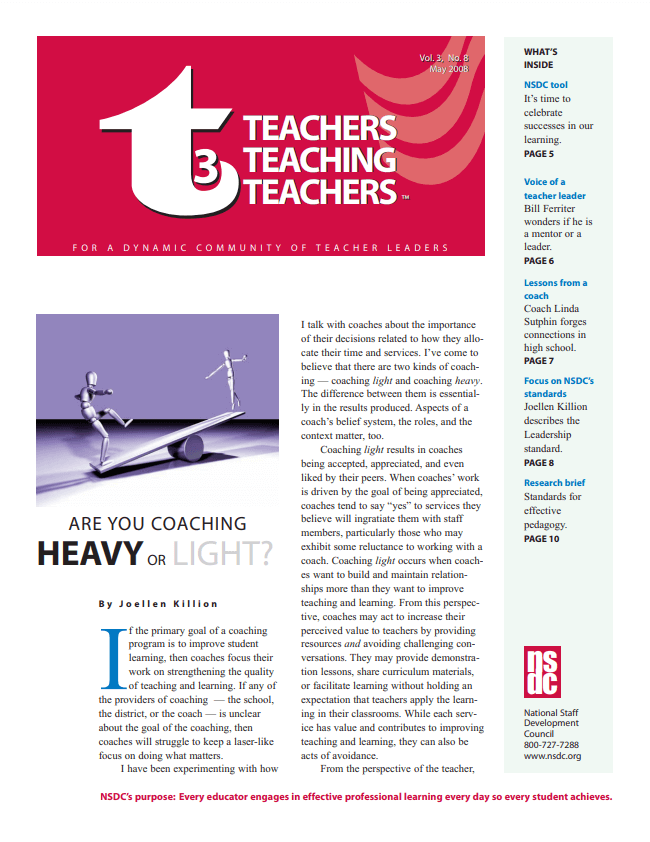
Teachers Teaching Teachers, May 2008, Vol. 3, No. 8

Are you coaching heavy or light?
Read about two kinds of coaching -- coaching heavy and coaching light -- and the differences they make to helping teachers improve the quality of instruction and student learning. Killion also provides a table with some common beliefs coaches hold and their potential side effects for teachers and students.
By Joellen Killion
NSDC tool: Celebrate a year of learning
Take time as the school year winds up to reflect on the year's challenges and successes as you plan for improvements next year. This tool guides facilitators in working with a school staff or teacher teams to look both to the past and the future, culminating in a large-group discussion.
Voice of a teacher leader:Trailblazers stand at the edge
n trying to figure out whether he is a mentor or a leader, Ferriter found a third answer -- he's a trailblazer! Read his thoughts on the role of mentors and trailblazers in schools. Ferriter ends his column with a question -- who are the pioneers and trailblazers in your building?
By Bill Ferriter
Lessons from a coach: Coaches are the machine oil
Linda Sutphin now realizes how important her role is in the entire machine of the school. As science curriculum leader for Mason (Oh.) City Schools, Sutphin helps teachers to collaborate, providing time and resources, as well as coaching assistance for assessment and lesson planning.
Focus on NSDC's standards: Coaches lead in many ways
Coaches have a variety of leadership responsibilities in schools. They serve as leaders of learning among their peers, and must continuously advocate for high-quality learning opportunities for all teachers. Such advocacy requires that coaches make clear to all stakeholders the tie between teacher learning and student learning. Learn more about the coach's role in fulfilling the Leadership standard in this month's column. (Available to the public.)
By Joellen Killion
Research brief: Teaching and learning for all
A recent study examined the Five Standards for Effective Pedagogy, developed by the Center for Research on Education, Diversity and Excellence (CREDE). The study found that teachers' use of the Five Standards can benefit students, particularly those with cultural, linguistic, or economic challenges. Explore the details, including a description of the standards.
By Carla Thomas McClure

